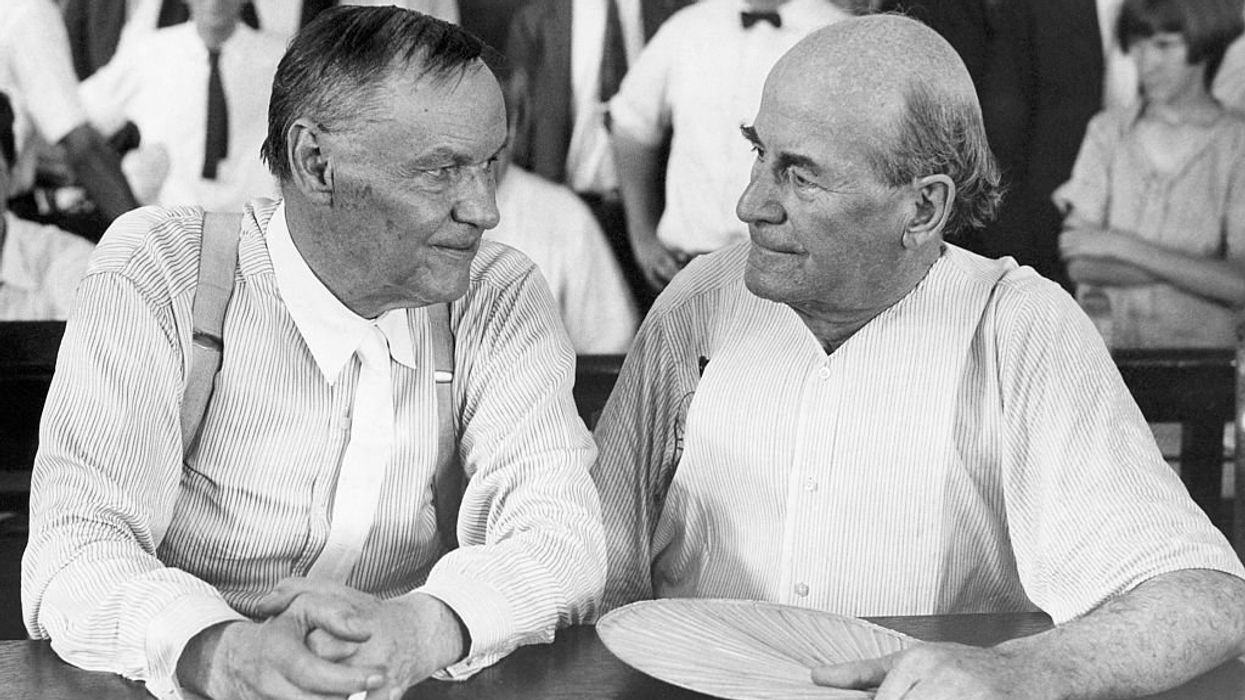
© 2025 Blaze Media LLC. All rights reserved.
After nearly two years of perpetually campaigning in the Badger State, Scott Walker is still governor. Walker held on in Tuesday's recall election, defeating Milwaukee Mayor Tom Barrett 53 percent to 46 percent, a wider margin of victory than Walker's first victory in 2010.
Now that the election is over, what do the results in Wisconsin mean for larger national political issues? Bill Frezza writes in Forbes that the recall results spell doom for public sector unions:
Scott Walker ran for office promising change. The fiscal medicine he is administering may be bitter, but it looks like it is starting to work.[...]
Best of all, the myth that union bosses represent their members’ interests has been exposed as a lie. Now that union dues are voluntary, tens of thousands of union members have stopped paying them. Membership in the Wisconsin chapter of the American Federation of State, County and Municipal Employees union (AFSCME) has dropped by half. Membership in the state’s American Federation of Teachers (AFT) is down by over a third. Given unions’ influential role in most elections, the national implications of this trend are staggering.
Walker’s message is clear: The key to bringing balance back to public sector labor relations and balance state budgets is to break the iron triangle of closed-shop mandatory unionization, compulsory dues collection, and oversized campaign donations to politicians that promise to do the unions’ bidding. If other governors take his cue and take up the cause, that giant sucking sound you hear will be the air coming out of union bosses’ bloated political action budgets.
On "Real News" Wednesday the panel discussed last night's win, what it means for national politics in the general election, and what work Walker and other governors across the country still need to do in reining in unsustainable public spending. S.E. Cupp built out on what she wrote in her New York Daily News column this morning, that no matter how Democrats want to spin it, Wisconsin's results have serious implications for Democrats in future elections. Especially the one this November:
Here's the unvarnished truth, though: Regardless of the polls or the fact that Wisconsin hasn’t voted for a Republican president since 1984, Walker’s win puts Wisconsin in play for 2012. And that’s because this isn’t just some one-off.The story started in 2010, when Walker won the first time as part of a Tea Party sea change that swept the country, both the state houses and Congress. Wisconsin didn’t just elect a Republican governor: It elected a Republican governor who was serious about fiscal reform. That was strike one for business-as-usual in the reliably blue state.
In that same year, Wisconsin ousted Russ Feingold, a long-time Democratic scion of the Senate who had served his state for nearly 30 years, and replaced him with Ron Johnson, another Tea Party pick who was serious about fiscal reform. Strike two.
And last night, Wisconsin doubled down on Walker’s message of (gasp!) austerity, vindicating not just the governor, but a nation-wide movement to reign in both the spending and the size of government. Strike three.
If presidential politics is anything like a Brewers game, Wisconsin could call Obama outta here in November.
Will Cain commented Wednesday that the failed Wisconsin recall will hopefully inspire other governors to move forward in enacting policy that deals with entitlement reform. Buck Sexton noted that Walker's convincing win confirms how weak and inconsistant the recall message really was.
Want to leave a tip?
We answer to you. Help keep our content free of advertisers and big tech censorship by leaving a tip today.
Want to join the conversation?
Already a subscriber?
more stories
Sign up for the Blaze newsletter
By signing up, you agree to our Privacy Policy and Terms of Use, and agree to receive content that may sometimes include advertisements. You may opt out at any time.
Related Content
© 2025 Blaze Media LLC. All rights reserved.
Get the stories that matter most delivered directly to your inbox.
By signing up, you agree to our Privacy Policy and Terms of Use, and agree to receive content that may sometimes include advertisements. You may opt out at any time.





